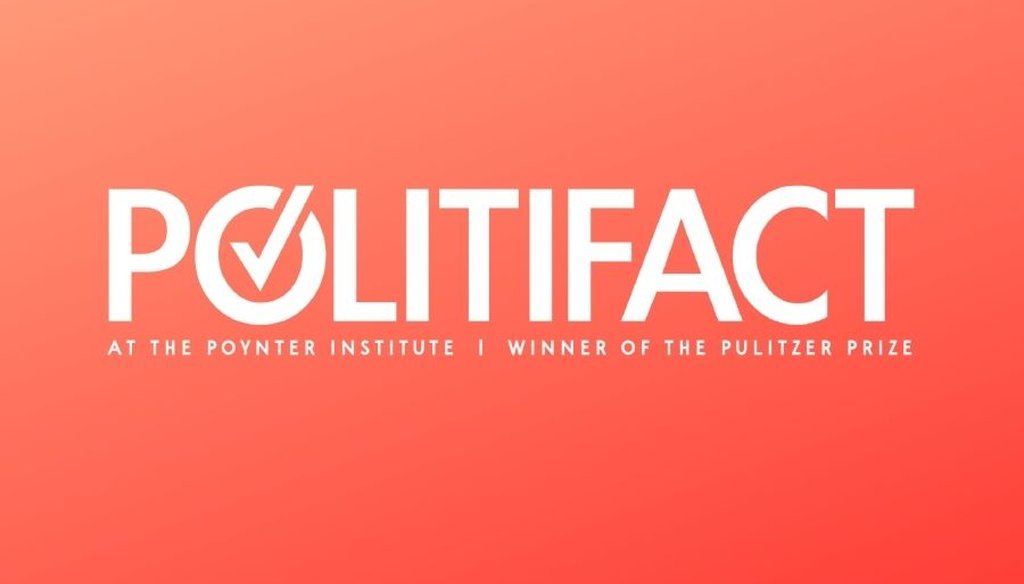

Our only agenda is to publish the truth so you can be an informed participant in democracy.
We need your help.


The latest average from Pollster.com says Republicans account for 22.5 percent of adults polled.
In a recent round of partisan fighting, Democrats made a claim that piqued our curiosity: that only 20 percent of Americans identify themselves as Republicans.
The comment grew out of the partisan food fight that followed President Barack Obama's surprise win of the Nobel Peace prize.
Republicans criticized Obama, claiming he had accomplished little in his first nine months to deserve the award. Democrats swung back, attacking Republicans for being divisive and unpatriotic in their attacks on the president.
In a particularly heated statement, Democratic National Committee communications director Brad Woodhouse compared the Republican response to Obama's win with the responses of terrorist organizations.
"The Republican Party has thrown in its lot with the terrorists — the Taliban and Hamas this morning — in criticizing the president for receiving the Nobel Peace Prize. Republicans cheered when America failed to land the Olympics and now they are criticizing the president of the United States for receiving the Nobel Peace Prize — an award he did not seek but that is nonetheless an honor in which every American can take great pride — unless of course you are the Republican Party," Woodhouse said.
He continued, "The 2009 version of the Republican Party has no boundaries, has no shame and has proved that they will put politics above patriotism at every turn. It’s no wonder only 20 percent of Americans admit to being Republicans anymore — it’s an embarrassing label to claim."
The number surprised us, so we decided to look into Woodhouse's claim that only 20 percent of Americans identify themselves as Republican.
The accuracy of Woodhouse's remark depends on how broadly you define someone's party affiliation. Pollsters typically ask people to identify their party, but results depend on whether you also include people who say they "lean" to one of the parties, or whether you restrict the label to include just registered voters who are likely to vote.
Recent polls indicate he was right for broad surveys that were not limited to likely voters. According to a recent Associated Press-GfK poll, 21 percent of adults identified themselves as Republicans, while 33 percent said they were Democrats.
An early October CBS poll found basically the same numbers, and an NBC/
Wall Street Journal
poll taken in September found Republican identification at 18 percent. A check of Pollster.com, a Web site that aggregates recent polls and averages the results, reveals that, overall, about 22.5 percent of adults identify themselves as Republicans, while 33.7 percent identify themselves as Democrats, if you average recent polls. Note that these averages are a little squishy because each poll has a different margin of error, but they give a good estimate of where the country stands.
While these numbers may seem low, consider that they typically only include strong and moderate supporters of either party. "Leaners" — those who consider themselves independent but usually lean toward a particular party — are not included.
Also, when screened to include just registered voters who are likely to vote in the next election, the share of people identifying with a party increases: 33 percent identify with Republicans and 39 percent identify with Democrats, according to the Pollster.com average. So among the population that is politically active, a higher percentage of people identify with a party.
To put the numbers into more context, we talked to Karlyn Bowman, polling analyst with the American Enterprise Institute, a conservative think tank. She confirmed that lately the self-identified Republican number has hovered in the 20 percent range.
Indeed, the Pollster.com chart shows that since the November 2008 election, the Republican number declined from about 28 percent to 22.5 percent.
So Woodhouse is in the ballpark if you rely on a universe where all adults either identify with a party or are considered independent. But other methods used by pollsters boost the Republican percentage because they screen for voters who are registered and likely to vote, or include more voters who are "leaners." So we find his claim Mostly True.
Whorunsgov.com,
DNC: Steele and GOP Have Thrown In Their Lot With The Terrorists By Criticizing Obama's Nobel
, accessed Oct. 12, 2009
Pollster.com,
National Party ID, All Adults
, accessed Oct. 12, 2009
Pollster.com,
National Party ID, Registered Voters and Likely Voters Only
, accessed Oct. 12, 2009
Interview with Karlyn Bowman, American Enterprise Institute polling analyst, Oct. 13, 2009
In a world of wild talk and fake news, help us stand up for the facts.
